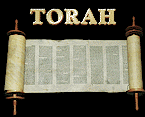Partner Name
Name of Contact Person
(800) 555-5555
www.partnerwebsite.com
Partner Name
Name of Contact Person
(800) 555-5555
www.partnerwebsite.com
Why Another English Translation?
First and foremost, because most translations use foreign names for the Creator--names that, during the age of grace may have been adequate to communicate the idea of "the highest deity", but which still borrowed the names of deities known in various culturolinguistic contexts that did not presuppose an accurate worldview, and thus brought with them baggage that we have had to, at best, "un-learn".
As renters know well, the days of grace do not last forever. As knowledge increases, so does our responsibility to jettison every bit of paganism that is brought to light. Not only did YHWH specifically forbid His people to even have the names of foreign deities on our lips (Exodus 23:13), but specifically commanded us to use His revealed name (Deuteronomy 6:13; 10:21). He also forbade us specifically from setting a table to Gad (Isaiah 65:11), which is pronounced exactly like the name of the Germanic deity (God) whose name is most often substituted for YHWH's. Though one of the tribes of Israel has the same name, and its pronunciation is innocent when used as such, in the context of worship we must be much more cautious.
This version uses the original Hebrew proper names, including that of the Creator. "Yahweh" (or "Yahuweh") is the most likely pronunciation according to the best available paleolinguistic evidence (with "Yehovah" also a strongly-arguable possibility), and He has declared that He wants His people to know His name. But to remind the reader to speak it only with the utmost reverence, the four-letter equivalent of the unpointed Hebrew word (YHWH) is used here.
Most English spellings of Biblical names are based on German transliterations, which are generally fairly close to the Hebrew sounds. But due to linguistic shifts, they are no longer pronounced the same in English, and thus the spellings we usually see have carried us further from the names to which these people would answer. Therefore, proper names are transliterated phonetically, in hopes of delivering us from those infamous King James pronunciation "guides" that drew us into a modern context instead of the ancient one in which Scripture was forged. (Yes, in terms of the three major stages in the history of the English language, King James counts as modern!).
In some cases church-oriented translations have cloaked ordinary, everyday Hebrew words with an almost "magical" meaning and need to be demystified. On the other hand, as in English, a Hebrew word may have many meanings. As an analogy, in English, the word "right" most often means "correct", but it also often means a particular side of the body, and can even mean "a 90-degree angle". Being so far removed from the original context (and often too proud to ask those who spoke Hebrew fluently because they were of a different persuasion), many translators often opted for the most common meaning of a word if the exact sense was not known, and thus, while not necessarily giving false information, the "bugle" has been given an indistinct sound, and "no one prepares for battle". And as more archaeological evidence is turned up, there is always room for revision, which, thanks to word processors and the Internet, is no longer so difficult.
Now that Hebrew has become an everyday language again, linguistic science has turned up more insights into rhetorical styles, and archaeological knowledge has mushroomed, we have many more resources at our disposal to decipher just what the Biblical writers were referring to.
The "Lost Sheep of the House of Israel"--the Northern Kingdom that YHWH promised to bring back into covenant as an entire people in the latter days--are only now rediscovering their roots. This has come to light so recently that most translations have no insight into this far-reaching background that finally makes sense of the distinctions Scripture draws between Israel as a whole and the Jews as one subset of Israel. One of the main purposes of this translation is to highlight the "road signs" that point us back to the "ancient path" that we are discovering to be our own heritage as well as Judah's.
"To the Torah and to the testimony! If they do not speak in agreement with this word, they have no light..." (Yeshayahu/Isaiah 8:20) If an interpretation of any part of Scripture contradicts this "constitution" of the whole House of Israel, then it is mistaken, or at best the emphasis is misplaced. What is often called the "New Testament" is actually a renewal of YHWH's covenant with Israel. To miss this continuity leads to heartbreaking misperceptions, but a correct understanding of Israel's founding document is absolutely essential to interpreting it properly.
Finally, the text is as literal as possible, rearranging word order or inserting words in brackets only where necessary to smooth out the English readability. Except where the original language clearly implies a fuller rendering, most explanations, clarifications, and alternate readings are reserved for the notes that appear below the pertinent verses.
May YHWH bless you and add insight as you read this interpretation of His Word.
Finally, a translation that retains the radical continuity between the "Old" and "New" Testaments!
For twenty centuries people have been emphasizing their differences, and though there may have been a few minor modifications because of our exile, the very one who ratified the renewed covenant said that anyone who in the slightest way denigrated the Torah would have the lowest position in his kingdom.
This version seeks to preserve that perspective in every way. It is a sacred-name translation of the whole Torah and eventually all of Scripture that uses everyday modern English but emphasizes our connection to the ancient Hebraic ways. Names are transliterated from the Hebrew and a special emphasis is placed on the return of the long-lost Northern Kingdom and the reunification of Israel and Yehudah that has already begun. Thus insights from both sides--regardless whether Jewish or Christian, Messianic or Orthodox, Talmudic or Karaite--are included if they are well-founded. We also aim to reflect the most up-to-date archaeological evidence as it is uncovered.
Click on any of the links below to read the portions already translated:
Scriptures for the Whole House of Israel
Genesis
Exodus
Leviticus
Numbers
Deuteronomy
(Genesis 1:1-6:8)
(Genesis 6:9-11:32)
(Genesis 12:1 - 17:27)
(Genesis 18:1 - 22:24)
(Genesis 47:28-50:26)
(Genesis 23:1 - 25:18)
(Genesis 25:19 - 28:9)
(Genesis 28:10 - 32:2)
(Genesis 32:3 - 36:43)
(Genesis 37:1 - 40:23)
(Genesis 41:1 - 44:17)
(Genesis 44:18-47:27)
(Exodus 1:1-6:1)
(Exodus 6:2-9:35)
(Exodus 10:1 - 13:16)
(Exodus 13:17 -17:16)
(Exodus 18:1 - 20:26)
(Exodus 21:1 - 24:18)
(Exodus 25:1 - 27:19)
(Exodus 27:20-30:10)
(Leviticus 1:1-5:26)
(Leviticus 6:1-8:36)
(Leviticus 9:1 - 11:47)
(Leviticus 12:1-13:59)
(Leviticus 14:1-15:33)
(Leviticus 16:1-18:30)
(Leviticus 19:1-20:27)
(Leviticus 21:1-24:23)
(Exodus 30:11-34:35)
(Exodus 35:1 - 38:20)
(Exodus 38:21-40:38)
(Leviticus 25:1 - 26:2)
(Leviticus 26:3-27:34)
(Numbers 1:1-4:20)
(Numbers 4:21-7:89)
(Numbers 8:1-12:16)
(Num. 13:1 - 15:41)
(Num. 16:1 -18:32)
(Numbers 19:1-22:1)
(Numbers 22:2-25:9)
(Num. 25:10 - 30:1)
(Num. 30:2-32:42
(Num. 33:1 - 36:13)
(Deut. 1:1 - 3:22)
(Deut. 3:23 - 7:11)
(Deut. 7:12 - 11:25)
(Deut. 11:26 - 16:17)
(Deut. 16:18 - 21:9)
(Deut. 21:10 - 25:19)
(Deut. 26:1 - 29:9)
(Deut. 29:10 - 30:20)
(Deut. 31:1-30)
(Deut. 32:1-52)
(Deut. 33:1 - 34:12)
N'vi'im (Prophets)
K'tuvim (Writings)
B'rith Khadashah
(Renewed Covenant for the House of Israel and the House of Judah)
2 Chronicles
Second-Tier Scriptures?
Some books, which I have not (yet?) translated, have appeared in past canons and were removed for various reasons. Some do appear to both support and throw additional light on those that are more universally-accepted, so we offer links to those:
Apocrypha (especially valuable are 1 and 2 Maccabees, (2) Barukh, and 2 Ezra/Esdras, sometimes called 4th Ezra.)
Additional books referred to in Scripture, and thus at least implicitly approved, are: Yashar/Jasher, Yovelim/Jubilees, and Hanoch/Enoch. These appear to have resurfaced in the latter days to add prophetic understanding especially useful as the end of the age with its unique convulsions draws closer and more are turning from the truth, and give us background knowledge as the days like those of Noakh approach.
The New Testament apocrypha are less recommended, as they tend more toward Gnosticism or a dissipated focus, but some with a more Hebraic bent (such as the Gospel of the Ebionites, Gospel of the Hebrews, the Didache, and 2 Clement) may be of more value.


